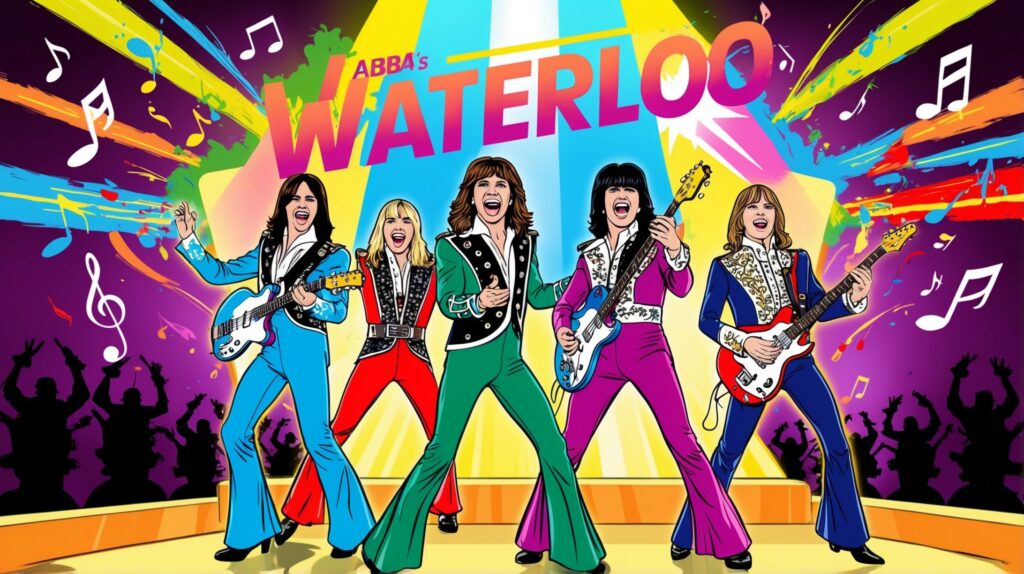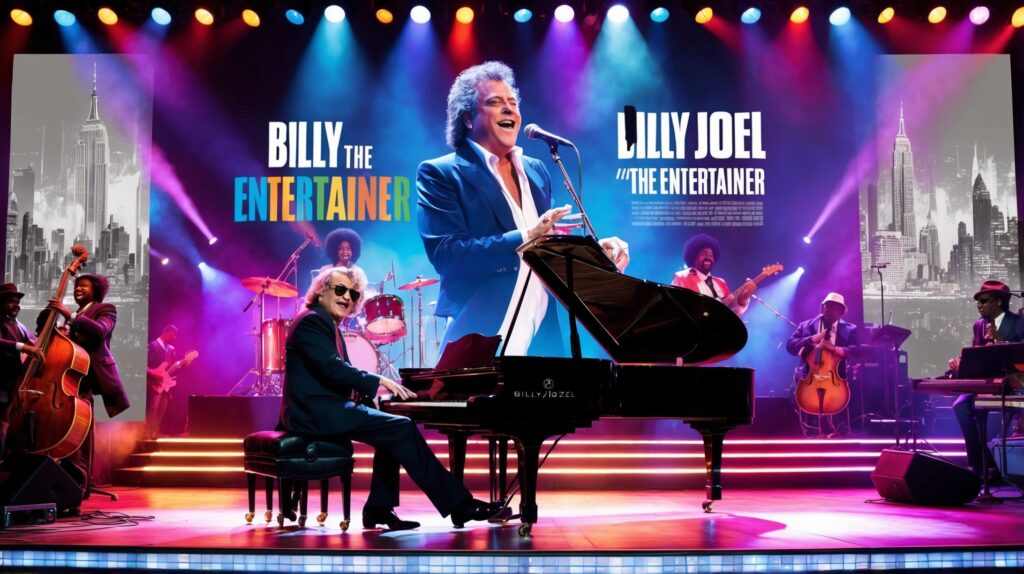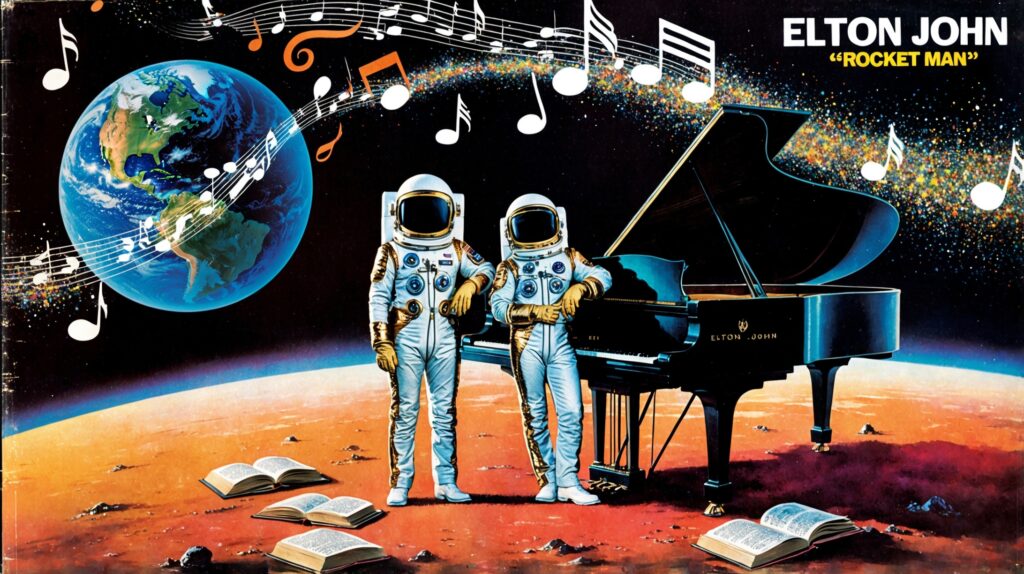ABBA: The Iconic Quartet Behind ‘Waterloo’
Explore how ABBA, through their unique blend of talents and charismatic performances, used their hit ‘Waterloo’ as a launchpad to global superstardom.
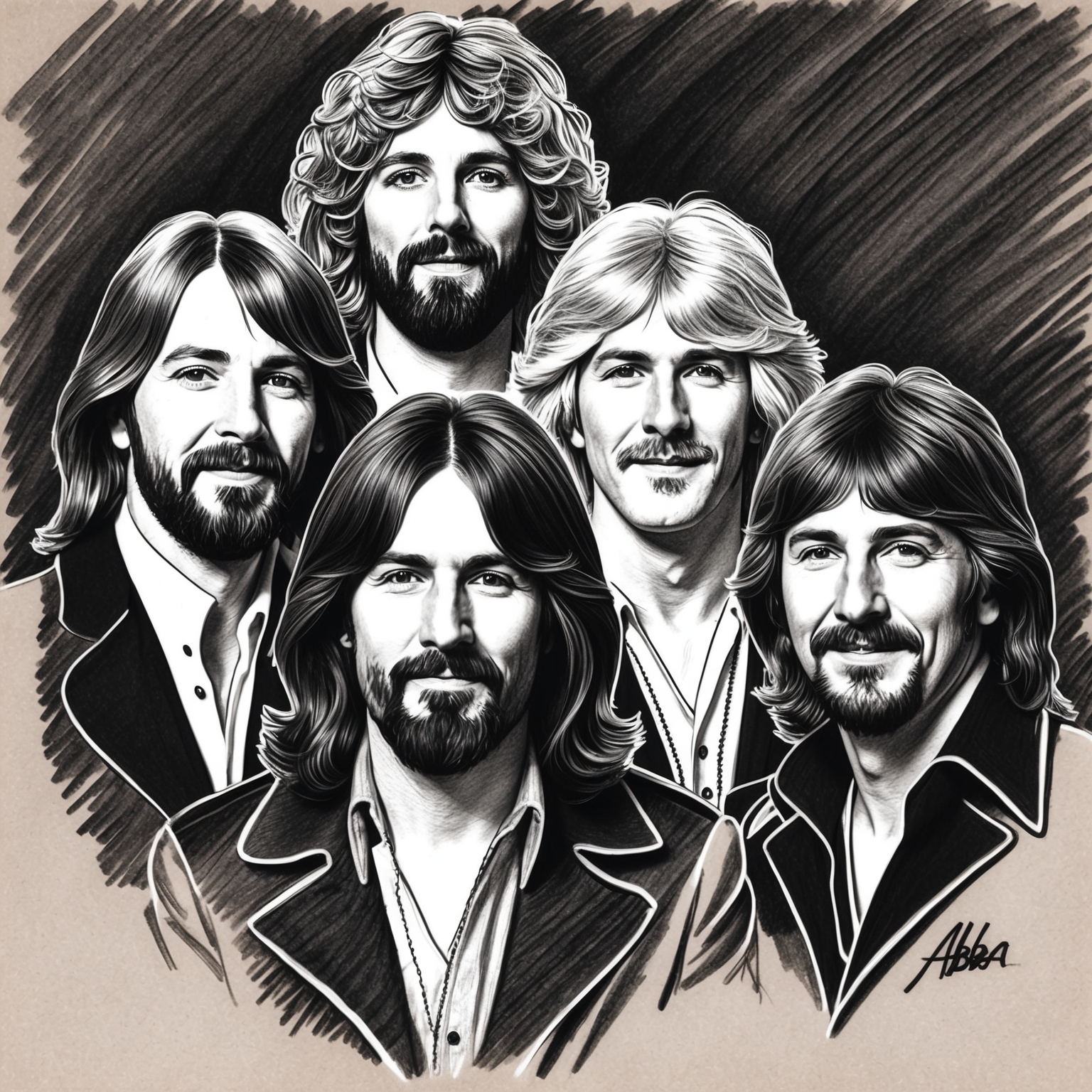
ABBA, the sensational pop group from Sweden, transformed the global music scene with their catchy tunes and dynamic harmonies. Comprising Agnetha Fältskog, Björn Ulvaeus, Benny Andersson, and Anni-Frid Lyngstad, ABBA became a household name in the 1970s with their infectious melodies and vibrant performances. The significance of ‘Waterloo’ in ABBA’s career cannot be overstated, as it was the song that catapulted them to international stardom, marking the beginning of their ascent to becoming one of the most successful pop groups in history.
The formation of ABBA began in the late 1960s, with the initial collaborative spark lit between Benny Andersson and Björn Ulvaeus. Both experienced musicians from their previous bands, the duo’s creative synergy was undeniable. Eventually, they were joined by Agnetha, an accomplished solo artist, and Anni-Frid, who had a flourishing career of her own. Their blend of contrasting vocal tones and complementary musical styles struck a chord with audiences worldwide.
‘Waterloo,’ released in 1974, came during an era of transformative change in the music industry, dominated by rock and the burgeoning disco genre. Winning the Eurovision Song Contest that year, ABBA’s ‘Waterloo’ not only showcased their distinctive pop craftsmanship but also captured the hearts and minds of millions across Europe and beyond. The song’s creation was a collaborative process, capitalizing on the joint efforts of the members, who thrived in a creative partnership that crafted numerous hits, each member contributing their artistic flair to the successful formula that defined ABBA.
Benny Andersson and Björn Ulvaeus: The Musical Architects of ABBA’s Success
Benny Andersson and Björn Ulvaeus are the pivotal composers behind ABBA’s success and the creation of ‘Waterloo’. Their unique musical synergy, shaped by their diverse influences, played an integral role in crafting the song’s memorable melodies and vivid storytelling.
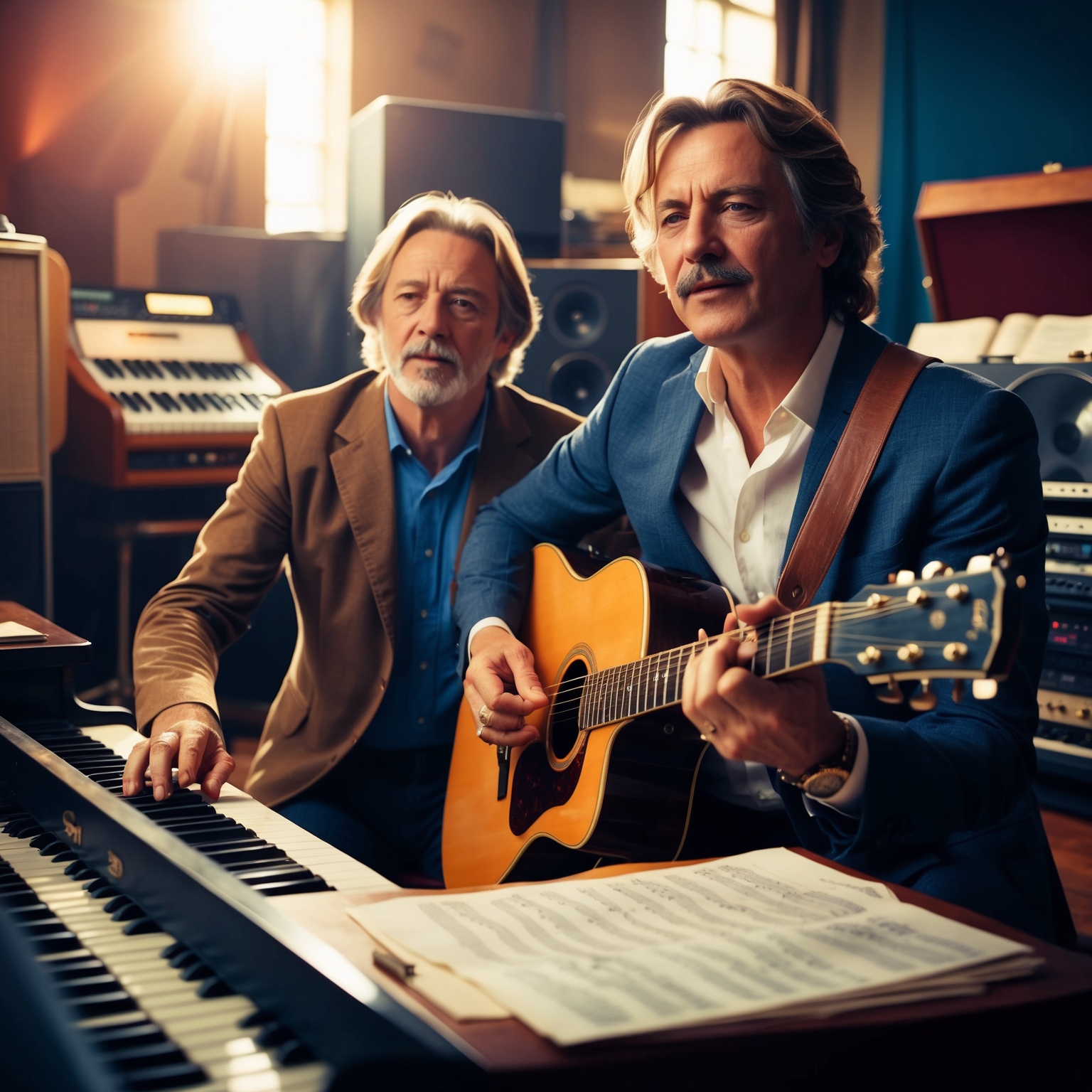
Background and Career: Benny Andersson and Björn Ulvaeus are the dynamic duo behind the legendary band ABBA’s most iconic tracks, including ‘Waterloo.’ Benny, initially a member of the successful Swedish pop group the Hep Stars, crossed paths with Björn, who was part of the folk group the Hootenanny Singers, in the mid-1960s. Both driven by a strong passion for music, they began collaborating and combined their distinct styles—Benny brought a keen sense of melody from his pop background, while Björn contributed profound storytelling skills from his folk roots.
Musical Style and Influences: The fusion of Benny’s and Björn’s influences crafted a unique sound that became synonymous with ABBA. Inspired by a wide range of musical genres, including rock, pop, and folk, their compositions often featured elaborate melodies intertwined with rich harmonies. The cultural vibrancy of the 70s, particularly the wave of disco and glam rock, significantly influenced their works, as did the rich folklore and traditional music of Sweden.
Collaborations and Role in ‘Waterloo’: Benny and Björn’s partnership flourished through the 1970s and 80s, with both taking an active role in writing and producing ABBA’s hits. In ‘Waterloo,’ they crafted an upbeat, catchy melody accompanied by lyrics that cleverly used the historical reference of the Battle of Waterloo as a metaphor for personal defeat in love. Their composition was crucial in rendering the song vibrant and timeless, transforming it into a defining anthem of the era.
Celebrating Triumphs: Awards, Covers, and Cultural Impact
Discover the awards that ABBA’s iconic song ‘Waterloo’ has amassed over the years, notable covers by diverse artists, and its remarkable presence in films and media.
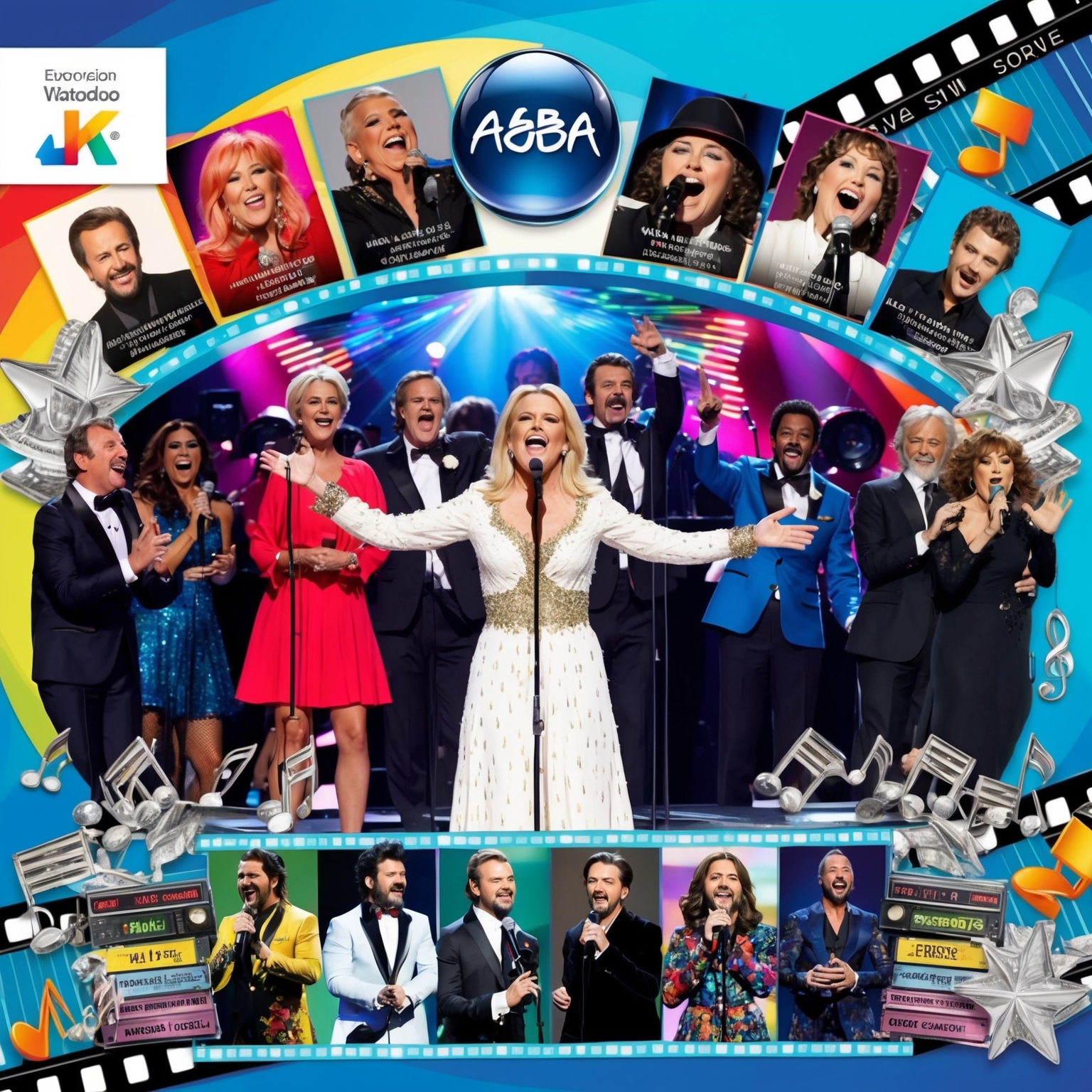
Waterloo, the iconic track by Swedish pop group ABBA, has accrued numerous awards and accolades since its release in 1974. Known for its catchy melody and lyrical brilliance, the song first dazzled audiences at the Eurovision Song Contest in Brighton, where it secured victory for ABBA. This triumph propelled the band to international fame, marking a landmark in Eurovision history and setting a new standard for future contests. The song’s infectious appeal not only won over the judges but also captured the hearts of millions globally.
Over the years, Waterloo has been recognized by various music organizations and features in numerous ‘Greatest Songs’ lists, including Rolling Stone magazine’s ‘500 Greatest Songs of All Time’. The song received a significant nod in 2005 when it was crowned the best Eurovision song in the contest’s 50-year history, further solidifying its legacy. This recognition is a testament to the song’s enduring popularity and cultural significance.
In addition to its awards, Waterloo has inspired a host of covers across different music genres. Artists like Doctor and the Medics, who gave it a psychedelic rock twist, and the cast of the Mamma Mia! musical, which offered a theatrical rendition, exemplify its widespread influence. Furthermore, the song’s vivacious spirit has found a place in various films, TV shows, and video games, including its memorable presence in the Mamma Mia! films and The Eurovision Song Contest: The Story of Fire Saga. These adaptations and placements maintain Waterloo’s charming allure for new generations, ensuring its place in the annals of pop culture.
Triumphant March: The Chart Journey of ‘Waterloo’
Waterloo’ by ABBA soared onto global charts in 1974, reaching number one in many countries and becoming a US top 10 hit. It marked a pivotal moment in ABBA’s career, benefiting from strategic marketing and a memorable Eurovision victory. Its catchy melody and cultural impact have sustained its popularity across generations.
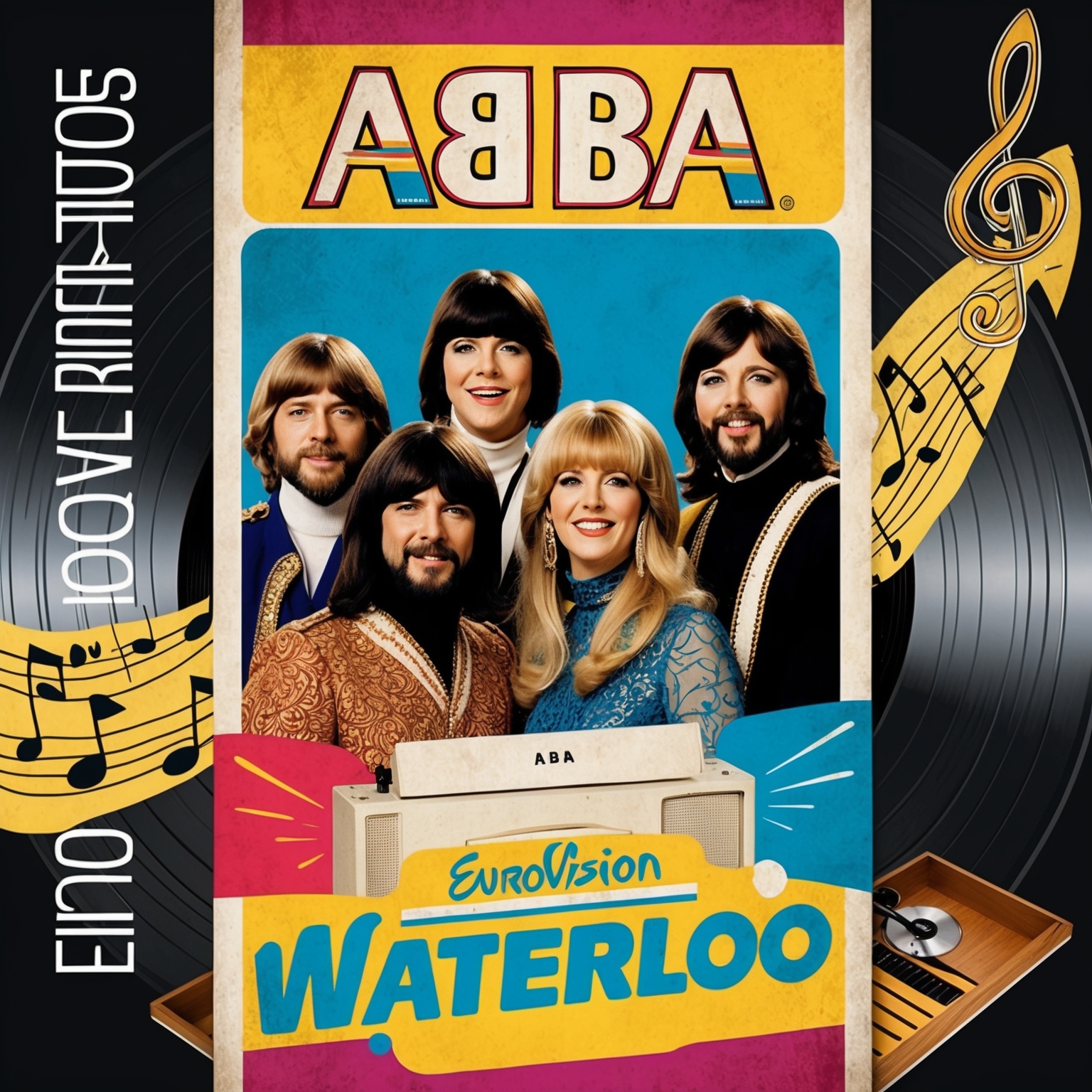
‘Waterloo’ by ABBA marched onto the music scene with the grandeur of a historical conquest. Released in March 1974, the song swiftly ascended to chart-topping glory. In the UK, it clinched the number one position and retained its crown for two weeks. This triumph was mirrored across Europe, where it dominated in Belgium, Denmark, Finland, and Norway, among others. Notably, it broke into the notoriously challenging US market, peaking at number six on the Billboard Hot 100, a commendable feat for a non-American act at the time.
‘Waterloo’ was not ABBA’s first foray into the music world, but it marked a significant milestone in their career. Prior to this, ABBA experienced moderate success, but ‘Waterloo’ catapulted them to international fame. It was both a commercial triumph and a harbinger of their impending reign as pop royalty. By establishing a distinct and infectious sound, ABBA paved the way for future hits that would continue to embellish their illustrious career.
The marketing strategy behind ‘Waterloo’ played a crucial role in its success. Capitalizing on their victory at the Eurovision Song Contest 1974, ABBA’s management ensured that the song was well-publicized across Europe. Their vibrant Eurovision performance, adorned in colorful costumes, captivated audiences and aligned perfectly with the catchy melodies of the track. This visibility was further amplified by strategic releases, television appearances, and extensive radio play.
Critically, ‘Waterloo’ received widespread acclaim for its catchy beat and innovative blend of rock and pop elements. Its legacy extends beyond just chart numbers; it is frequently cited in discussions about the best Eurovision performances. The song’s cultural impact is significant, often regarded as a defining moment in Eurovision history and a standout 1970s pop anthem. Over the years, ‘Waterloo’ has continued to resonate with new audiences through playlists, digital streams, and even viral TikTok challenges, reminding us once again of its timeless appeal.
Visual Imagery that Rocketed ABBA to Global Stardom
ABBA’s ‘Waterloo’ music video enhanced the song’s popularity and showcased their dynamic style with engaging visuals and vibrant performances.

ABBA’s ‘Waterloo’ music video is as much an iconic piece of art as the song itself, capturing the effervescence and showmanship that defined the band. Filmed in 1974, it showcases ABBA at their most vibrant, clad in flamboyant costumes that exemplify the glam rock and disco eras. The group performs with energy and charisma, a dynamic combination that was relatively novel at the time, setting them apart and attracting a global audience. The use of split screens and dynamic camera angles further adds to the visual allure, making it a mesmerizing experience that complements the song’s infectious melody.
The music video hugely contributed to ‘Waterloo’s’ popularity. In an era where visual media was becoming increasingly important, ABBA understood the power of television and music videos in branding and marketing their music. Their appearance on the Eurovision stage and subsequent TV appearances with this video helped cement their song as the winning entry, and later as a timeless hit. By showcasing the band’s unique style and performance strike, the video bolstered their international appeal, holding the audience’s attention and spreading their fame across continents.
Critically, the music video for ‘Waterloo’ has been hailed as a pioneering effort that elevated ABBA’s status in the music industry. Noted for its energetic approach and innovative use of performance elements, the video’s reception was overwhelmingly positive, with media outlets praising not only the band’s talent but also the production quality. The team behind this successful endeavor remains relatively unsung, with much of the credit attributed to ABBA’s collective creativity and their ability to bring a song to life visually as much as they did musically.
A Closer Look at ABBA’s ‘Waterloo’: Its Intricate Musical Architecture
Explore the intricate musical structure of ABBA’s ‘Waterloo’, from its key and tempo to melody, harmony, and instrumentation. Discover how this song marks a pivotal moment in ABBA’s musical journey.

ABBA’s ‘Waterloo’ is a hallmark of the band’s prowess in blending catchy pop melodies with intricate musical structures. Written in the key of F major, the song has a bright and upbeat tonality that matches the jubilant and victorious theme of the lyrics. The chord progression follows a standard pop structure but with subtle complexities that add to its infectious quality. The tempo is set at a lively 138 beats per minute, contributing to its energetic flair that makes it impossible not to tap along.
The melody of ‘Waterloo’ is a testament to ABBA’s skill in crafting memorable hooks. The verse and chorus are clearly delineated, each with its own melodic identity. The harmony, particularly in the chorus, features layered vocals—a signature ABBA technique—that gives the song its rich, full sound. Rhythmic intricacies, such as syncopation, also keep the listener engaged, amplifying the song’s dynamism.
The instrumentation of ‘Waterloo’ combines classic rock elements with pop sensibilities. The electric guitar riffs, coupled with the grand piano, provide a solid foundation, while the saxophone adds a distinctive flair that gives the song its unique sound. Notably, ‘Waterloo’ marked a significant point in ABBA’s discography as it showed a departure from the more straightforward folk influences of their earlier works toward a polished pop-rock sound. Recorded at the Metronome Studios in Stockholm, the song was produced by Björn Ulvaeus and Benny Andersson, who infused the track with their exceptional ability to blend diverse musical elements. This evolution in their music paved the way for more complex and mature compositions in their subsequent albums.
Exploring the Themes and Storytelling in ABBA’s ‘Waterloo’
ABBA’s ‘Waterloo’ cleverly intertwines historical metaphors, personal storytelling, and rich literary devices to convey an emotional tale of romantic surrender.
At Waterloo, Napoleon did surrender
Oh, yeah
And I have met my destiny in quite a similar way
The history book on the shelf
Is always repeating itself
Waterloo
I was defeated, you won the war
Waterloo
Promise to love you forevermore
Waterloo
Couldn’t escape if I wanted to
Waterloo
Knowing my fate is to be with you
Wa-Wa-Wa-Wa-Waterloo
Finally facing my Waterloo
…
******* This Lyrics is NOT for Commercial use *******
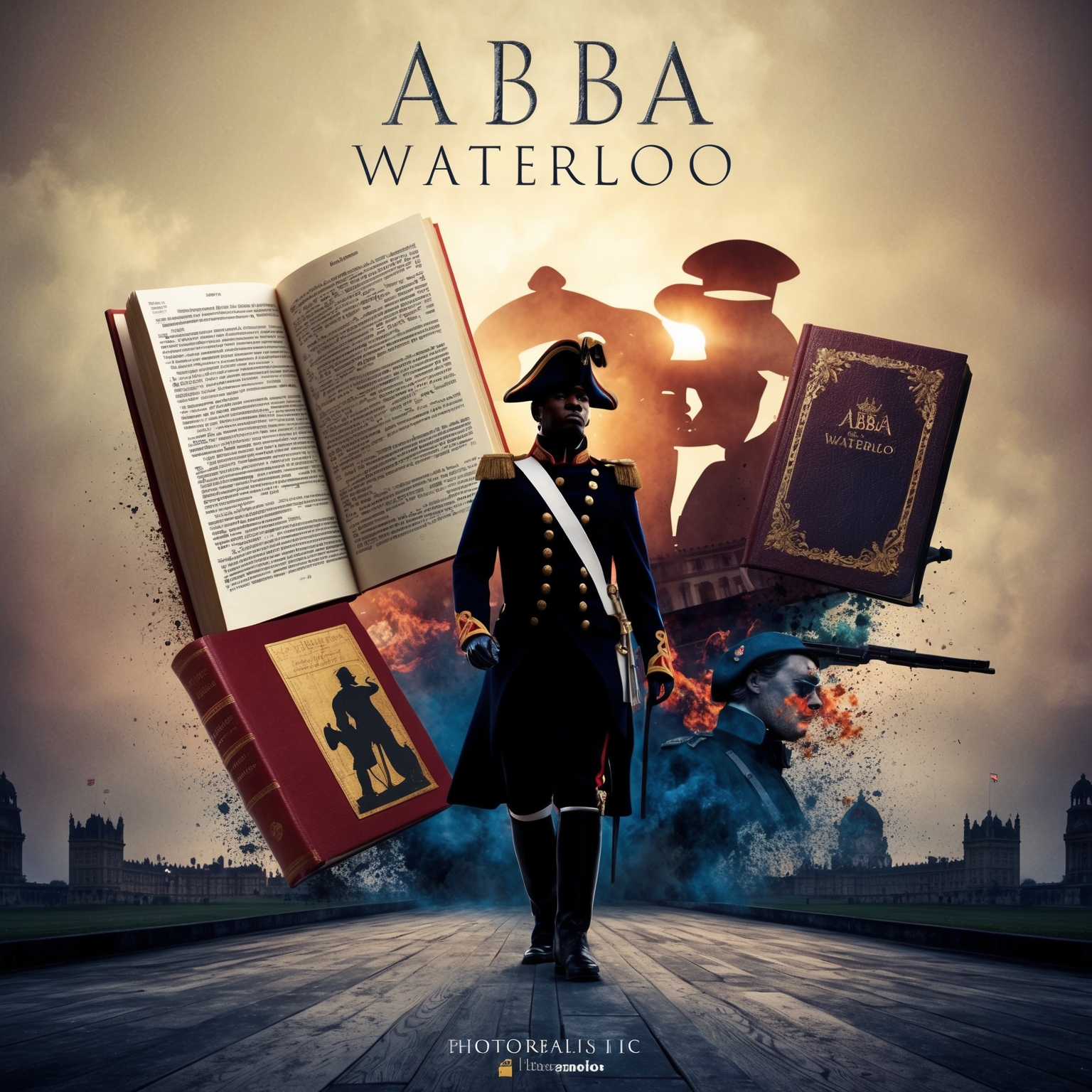 ABBA’s hit song ‘Waterloo’ is a brilliant fusion of historical allusion and personal introspection, capturing the essence of an individual’s emotional surrender in the face of love. The primary lyrical theme revolves around the metaphorical comparison of a personal experience with romantic defeat at the famed Battle of Waterloo, where Napoleon Bonaparte met his downfall. Just as the history book on the shelf hints, the lyrics underscore the repetitive nature of history – both personal and global – suggesting that no matter how much one fights against fate, some outcomes are destined to recur.
ABBA’s hit song ‘Waterloo’ is a brilliant fusion of historical allusion and personal introspection, capturing the essence of an individual’s emotional surrender in the face of love. The primary lyrical theme revolves around the metaphorical comparison of a personal experience with romantic defeat at the famed Battle of Waterloo, where Napoleon Bonaparte met his downfall. Just as the history book on the shelf hints, the lyrics underscore the repetitive nature of history – both personal and global – suggesting that no matter how much one fights against fate, some outcomes are destined to recur.
In terms of narrative, ABBA cleverly crafts their tale from a first-person perspective. This approach invites listeners into the intimate experience of the singer as they grapple with their inevitable submission to love. The repetition of the phrase ‘Waterloo’ throughout the song mirrors the surrender’s weight, combining personal vulnerability with a sense of inescapable destiny. Through this storytelling technique, the song crafts a compelling narrative of emotional conflict, resolved through acceptance, which resonates deeply with audiences.
ABBA employs effective literary devices throughout ‘Waterloo’. Metaphors link the romantic experience to Napoleon’s literal defeat, creating a powerful connection that broadens the song’s emotional impact. The rhyme scheme and repeated alliteration, like ‘Wa-Wa-Wa-Wa-Waterloo,’ add a playful yet poignant rhythm, enhancing its lyrical quality. These artistic choices bring deeper layers to the lyrics, allowing listeners to explore various emotional landscapes, from defiance to acceptance.
Did you know? 🎶 ‘Waterloo’ by ABBA won Eurovision in 1974 & changed pop history! It was inspired by Napoleon’s defeat! 🇸🇪💥 #ABBA #Waterloo #PopLegend #Eurovision https://bit.ly/3YiZBNC
Click to Tweet

